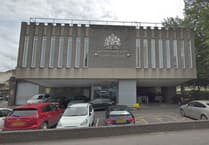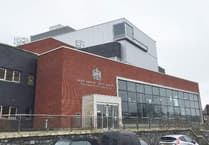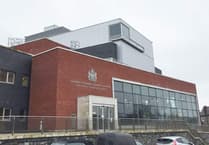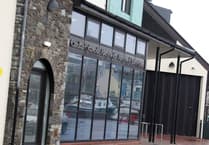Britain’s most notorious prisoner who grew up in Aberystwyth, Charles Bronson, is set to face a parole board hearing which could set him free next week.
The legendary inmate – famed for his eccentric personality, successful art career and violent hostage takings – is said to have a romantic connection to Aberystwyth, near where his mother and brother live.
The Parole Board for England and Wales is set to rule whether Charles - who changed his second name to Salvador in honour of his artistic hero, Salvador Dali – will be allowed to walk free next week.
Two hearings are set to take place next Monday (6 March) and Wednesday – and Salvador is said to be confident of his release, after speaking for a new Channel 4 documentary.
Salvador, aged 70, is one of Britain’s longest serving prisoners and is also the focus of Aberystwyth folklore.
As legend has it, the first thing he intends to do on his release from prison is run naked down Constitution Hill. He is also said to be planning to move back to the area as soon as he can.
In 1974, he was jailed for seven years and has since spent almost 50 years behind bars – aside from two very brief periods of freedom.
His infamous fights with and violence towards fellow prisoners and prison staff, along with his headline-grabbing hostage takings, have seen him condemned to successive sentences – and he has been turned down for parole repeatedly.
Salvador is currently serving a life sentence which was imposed in February 2000 for the offence of false imprisonment.
It is thought he is being held at maximum security HMP Woodhill in Milton Keynes, Buckinghamshire.
The Channel 4 documentary, entitled Bronson: Fit to be Free?, features a phone call with his brother in which he asks: “What the f*** am I still in prison for?”
One of his brothers, Mark Peterson, lives in Tal-y-Bont and his mother Eira is thought to still be living in Penparcau. His father ran Aberystwyth’s Conservative club.
Reforms to the parole board system passed last year now enable hearings to be held in public – and Salvador was one of the first high-profile criminals to apply for his to be heard this way. His appeal for a public hearing was approved in November last year.
In making the decision, the chair of the Parole Board for England and Wales, Caroline Corby, argued there was a public interest in Salvador’s hearing being heard in public, especially in light of recent procedural reforms.
She said: “In 2019, Mr Salvador launched a judicial review challenging the requirement that all parole hearings be held in private. This case was disposed of by way of a consent order as the Secretary of State agreed to review the relevant parts of the Rules; the Rules change followed in July 2022.
“Mr Salvador has delayed the review by the Parole Board of his continuing detention for over two years by actively seeking to have his case heard in public.
“There appears to be minimal risk of re-traumatising the victims in this case.
“The Parole Board’s work is often not well understood by the public. Mr Salvador’s case is a high profile one. There is a public interest in increasing understanding which can properly be taken into account when considering the interests of justice.
“I have concluded that a public hearing is in the interests of justice in the case of Mr Salvador. I therefore grant the application for the hearing to be held in public.”




